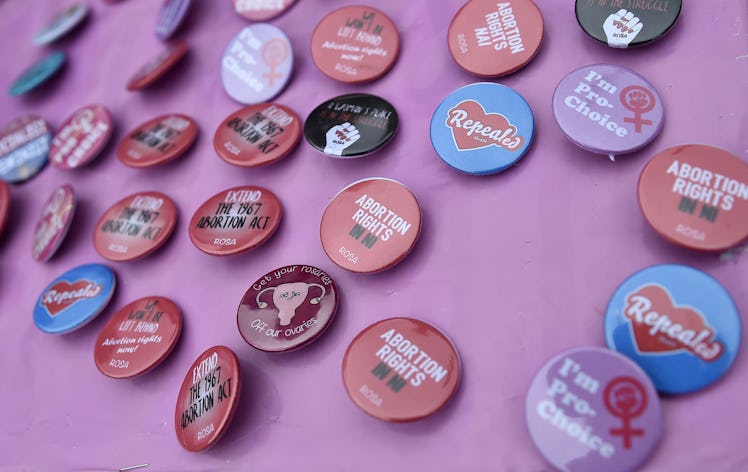
These Abortion Measures Will Show Up In The 2018 Midterms, So Here's What To Know
The November midterm elections are coming up, and the future of American democracy might be on the line. From voter ID laws to transgender rights, there are a number of issues on state ballots this year, but these three states have abortion measures on the ballot, and it's never been more important to vote. So, for those who aren't up-to-date about what's happening, here's a rundown.
This November, Alabama, West Virginia, and Oregon voters will come face-to-face with with ballot initiatives that would try to restrict abortion access for residents in each state, whether through limiting funding or actually trying to ban the right to have an abortion. This will be the first time since 2014 that abortion will be on the ballot level, since the issue was never brought up in 2016. All three states will be fighting over this issue come November, and even though each one has a different take on the matter, it's still important to consider the serious consequences that could happen if these ballots pass.
In regards to Alabama, its ballot initiative is arguably the most extreme of the three, since it would "recognize and support the sanctity of unborn life and the rights of unborn children," according to the text of the measure. Therefore, this ballot would literally try to eliminate the right for a woman to obtain an abortion in Alabama. Thankfully, the existence of Roe v. Wade still ensures that women in Alabama will have the right to an abortion, but if that decision is overturned, then that could immediately prevent women across the state from that choice. Hello, welcome back to the 1950s everyone.
For West Virginia and Oregon, the ballot initiatives are less about accessibility and focus more on banning funding to abortions. In West Virginia, the initiative would prevent Medicaid from funding abortions except in the cases of rape, incest, or threats to the mother's life. Importantly, the West Virginia initiative also specifies that nothing at the state level guarantees a woman's right to an abortion, meaning that — again — should women lose that right at the federal level, we could see problems.
On the surface, Oregon's ballot initiative could appear as the most "reasonable" to voters, as it simply limits funding for abortion via Medicaid. (Oregon is one of 17 states that allows some state funding towards abortions.) So, even though this new measure wouldn't prevent women from seeking abortions, it would limit access to it for women who get publicly-funded health care, meaning low-income women in particular will have more trouble accessing abortion care.
Advocates are already worried about the initiatives. "The immediate concern is the number of women who will be harmed by these types of restrictions, those who already struggle to access care," Leslie McGorman, the deputy policy director for NARAL Pro-Choice America tells Elite Daily in an interview. "That would be of course worsened under any of those scenarios." She says that since states such as West Virginia and Alabama have a more rural population, the likelihood that women who already have trouble accessing reproductive health care will face even more obstacles is definite and the impact could be huge.
According to McGorman, women of color stand to lose the most if these initiatives pass. Oftentimes, these women rely on public funding and federal programs such as Medicaid to pay for abortions.
"It would disproportionally impact communities of color, the women who are often let out of public funding streams and those who are covered by an insurer who refuses to pay for an abortion," McGorman says. "So, lots of women stand to be harmed by this." Elite Daily reached out to national anti-abortion group National Right to Life for comment on the measures, but did not immediately hear back.
Even though these initiatives only concern three states, these proposals speak to a larger problem about the future of reproductive rights in the United States, namely giving anti-choice advocates a platform and narrative on the issue. "It's really going to test public engagement and perception," McGorman says.
However, McGorman pointed out while these ballot initiatives aren't necessarily uncommon, organizations such as NARAL have been successful in pushing back against these proposals in the past. However, it's up to voters in these three states to show up to the polls and make sure progress doesn't go backwards.
"They're counting on people to assume, 'Oh, West Virginia is conservative, so we're not going to try,' or 'Alabama is conservative, so we're not going to try," McGorman says. "Voters who think it's lost already aren't going to turn out. West Virginia and Alabama will require for people to turn out."
In case it wasn't obvious by now, it's never been more important to get out and cast your vote. I'll see you at the polls.